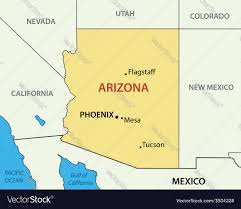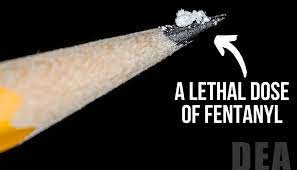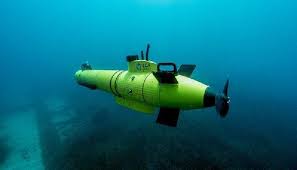Visiting rehab programs in Sedona, Flagstaff, and Prescott, Arizona last week, I connected with a number of extraordinary young adults. Some had been clean for a few weeks, some had been sober for several years. Most attended Alcoholics Anonymous or Narcotics Anonymous meetings. A number of the graduates—my own clients and others—were working at the programs where they had gotten clean, an extraordinary example of paying it forward, of giving back.
It’s not just that the mentors say, “I know from subjective familiarity all the ways you have lied to your family and to yourself.” It’s that the mentors communicate, “I’ve been there, I never would have believed it, but it’s possible to get better, to have a life not based on trauma.”
I can’t summarize the demographics of these folks in recovery. Some come from families of means; some are college graduates; some have been enabled and rescued by parents. But others not. It would be presumptuous of me to suggest commonalities of background or focus on one variable—social class, education, parenting style—to describe young people who are returning the life-saving favor that they received. Twenty-seven-year-olds mentoring 23-year-olds. Beautiful. I don’t mind admitting I got emotional talking to kids who within the past couple years were circling the drain, struggling, using. These kids are now working with the next cohort of kids in recovery, helping them get clean.
Parents frequently ask me if the dangers to our children are more pronounced in this generation. Kids were always sneaking out to have a cigarette and a beer parents say. Everyone knows of a tragedy—a wrecked car, a phone call at two a.m., shattered lives—from years ago. Are things truly worse in 2024?
One fact is not news: the availability of fentanyl is recent. “One and done” is now.
Driving from one rehab facility to the next, I passed as many CBD and pot shop stores as I did ranches and farms. The easy access to gateway drugs made me angry. Kids with substance use disorder and co-occurring mild mental health issues can easily become addicted, and smoothly transition from addiction to chemical dependency. It’s easier to get hooked now than ever before. The marijuana of 40 years ago was two percent THC. Weed today is ten times as potent and can be laced with horse tranquilizers or opioids. I would argue that the danger to children from drugs is exponentially worse today. All those stores making money from misguided folks made me angry.
My anger led to an insight. So many of us who care about children are furious with big tobacco, with predatory student loans, with the availability of every illicit harmful substance. We are rightfully outraged that process addictions are everywhere. Scratch offs are available at every supermarket. Illicit drugs are accessible at every high school. But I can’t do anything to strike back at a drug lord from overseas. I don’t have access to an arsenal of armed drug runners and I’m fresh out of drone submarines.
Every parent knows that the war on drugs is lost. Lost generations ago. Communities where children don’t have access to deadly substances no longer exist. As a result of not being able to do anything about the people who smuggle and sell deadly drugs, loving parents direct their anger elsewhere–frequently at one another. Rather than being happy for our neighbors, we blame the child who is valedictorian. My child should have been the one to be graduated first. We blame our neighbor’s kid for winning the soccer game. We blame each other. We spit at one another from our silos. Because we can’t get back at the people who are profiting from harming our children.
I think many parents share my disgust and my feeling of helplessness. Because we can’t control illegal drugs flooding our communities our anger causes us to strike out where we can.
I don’t know what to tell you to do with your anger. Except to hold your kids close; educate them about the short-term negative consequences of using; don’t sweat the small stuff; and, if you’re lucky enough to be able to talk to young adults who survived, take solace in the fact that recovery is as powerful as it is possible.







4 thoughts on “Rehab”
Wonderful article, as usual, David! Here’s a suggestion for those parents: how about getting into your own recovery in Al-Anon? Addiction is a family disease and you, too can have a happy, serene life no matter what. Sure beats the hell out of spitting at each other from the sidelines…The young people in 12 step recovery today are impressive! There are open 12 step meetings that anyone can attend and they are filled with enthusiastic, sober and clean young people. This is the future in 12 step recovery and it’s very bright…
what a heart-felt post David. I share the anger and fear with you.
I would add to your analysis on what is within the parent’s control is to model a life of fun without substance abuse.
I see so many good parents, good people, who love and care for their children and look after them and hug them and spend time with them — are also constantly getting plastered around them. The message starts early on –> FUN = inebriation. When you grow up seeing your parents chomping at the bit to get a drink any chance they get, isn’t the message, “being on something is better than being sober?”
That is not to say that parents can’t model a healthy relationship with alcohol – I do see scenarios in which that is the case. But often that is not the case, and kids are getting the wrong message from very early on.
I can’t guarantee me not drinking or doing drugs will stop my children from doing so. But I hope it shows them that a happy, fun, life without alcohol or drugs IS A THING. Here’s to hoping,
Thank you for continuing to discuss the addiction issue. Loving communication about consequences before they occur is a wonderful suggestion and may help avoid some very difficult and dangerous times. Loving support after the sometimes inevitable addiction occurs is also important. It’s a disease not a moral failure. Treatment and 12 step programs are especially good at providing that support. Your example of peers guiding the newcomer is a perfect example. Nothing can replace help from someone who has traveled the recovery road.
Unsolicited shout out for Michael Festinger who runs a program for adults in recovery. (Full disclosure: Mike and I are friends since high school! 🙂 Better Way of Miami provides treatment and housing to men struggling with addiction many of whom are undomiciled. Michael’s commitment and leadership are unparalleled. He and his organization provide care to those who need it most. Better Way of Miami ain’t fancy schmancy rehab–no sushi chef or hot tub–but they get the work done.
Honored to know you, old friend. Thanks for reaching out. Keep me posted on your good work.